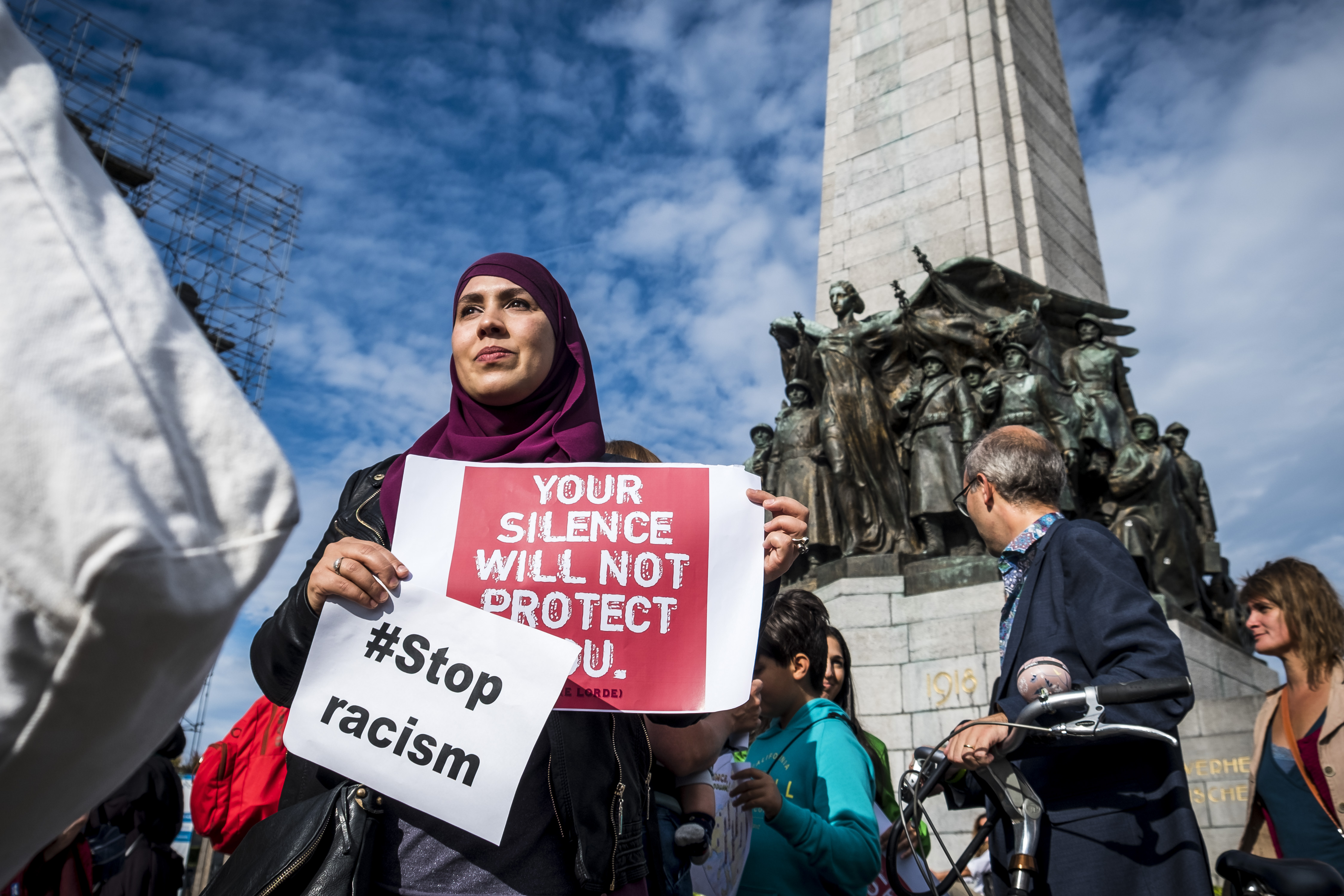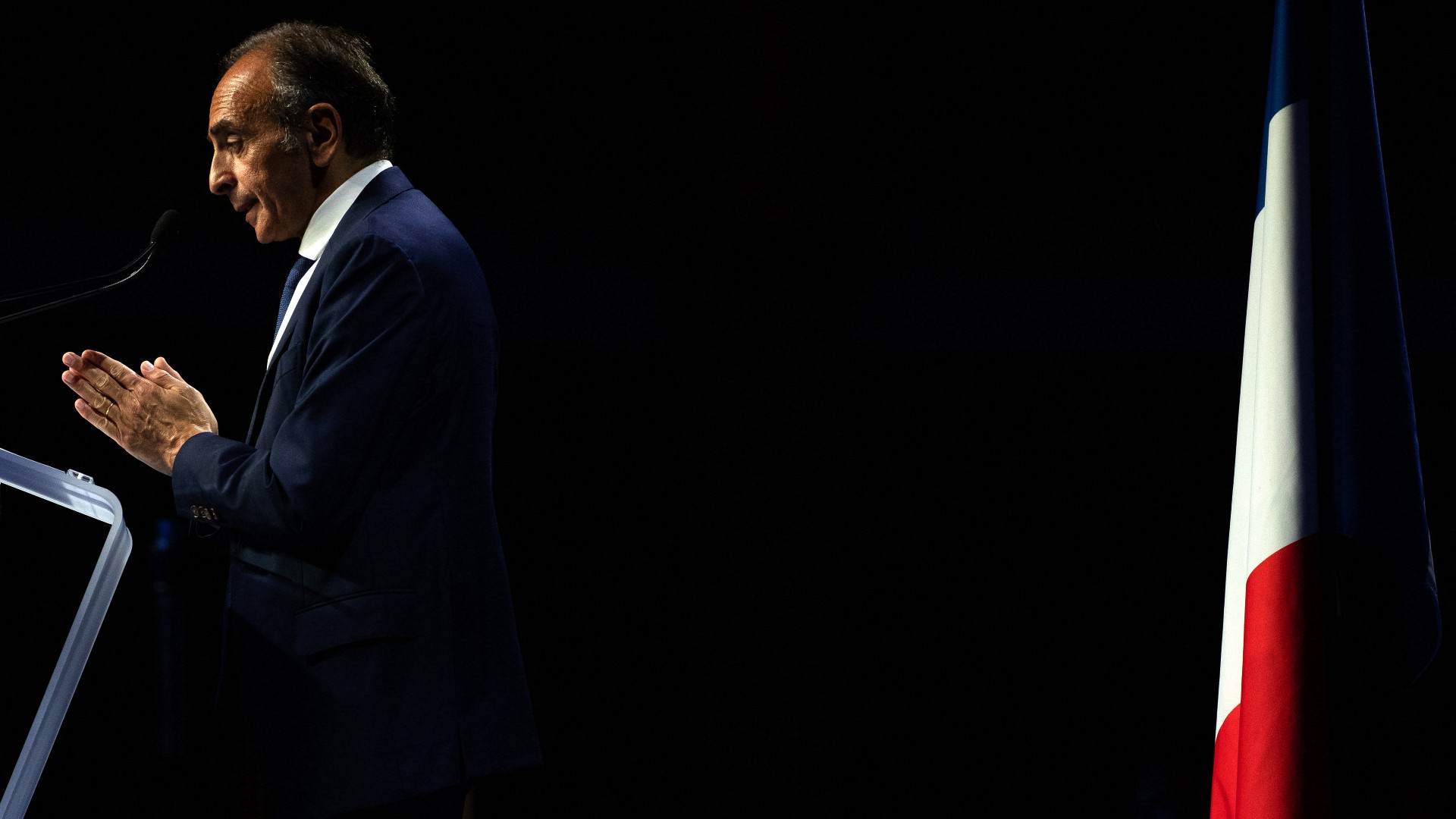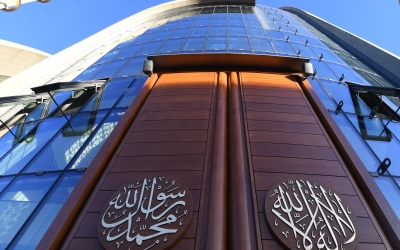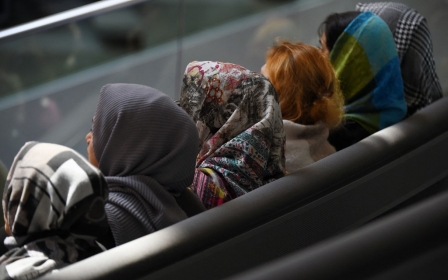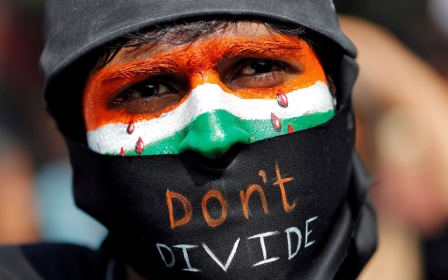Meloni's victory in Italy signals the rise of a global anti-Muslim alliance
A mere few days after the major electoral upset of the right-wing Sweden Democrats becoming the second largest party in the country, and the leader of the winning right-wing bloc, it was Italy’s turn to select as their future prime minister the leader of the "post-fascist" party, Fratelli d’Italia (Brothers of Italy), who may be more accurately called "neo-fascist".
Meloni’s accession to power is just the latest evidence of a dramatic political groundswell across the whole continent
The reactions of western governments, elected officials, and media have been strangely muted and accommodating when one considers that two more European Union member states, including one of its original founding members, Italy, have consecutively fallen to the far right, this time putting in power nothing less than, first, a party founded by neo-Nazis in the 1980s, and then the direct descendants of Mussolini’s fascists.
The embarrassed timidity of the reactions is understandable. The elections being perfectly democratic and legitimate, it is hard to criticise Italy’s choice without interfering directly in the internal political affairs of an ally, as EU Commission chief Ursula von der Leyen quickly realised.
The 'business as usual' spin
Pundits, but also experts in Italian politics and academics, had for months largely diminished the notion of a “fascist threat” by pointing out that Italian neo-fascist parties had for long been incorporated into democratic parliamentary and electoral politics, or that the Brothers of Italy was actually not a fascist party but a traditionalist, conservative, populist-nationalist, or even "techno-sovereignist" one.
New MEE newsletter: Jerusalem Dispatch
Sign up to get the latest insights and analysis on Israel-Palestine, alongside Turkey Unpacked and other MEE newsletters
Commentators have worked overtime to reassure us that Brothers of Italy is not extremist but moderate, realist, and pragmatic on issues like EU relationships, the economy, and foreign policy; that there will be strong continuity with the previous Mario Draghi government; that Meloni will have her hands tied anyway by her coalition and the EU itself; and that this coalition may not even survive more than a year or two.
Major newspapers like France’s Le Monde have soothed us by reminding us of the capacity of a supposedly fundamentally "centrist" Italian system with strong counter-powers to force compromises and tame radicalism, while Meloni herself went out of her way to moderate her image, assuring the public that there was nothing to fear and that she would serve as a "uniter" who would "govern for everyone", not just those who voted for her.
Finally, it is well known in political science that the electorate of a party does not necessarily share its ideological orientations or even know its programme.
This particular Italian vote was indeed largely a protest vote where people rooted for the "anti-system" candidate, the "outsider", the “underdog” in order to express their profound dismay at the traditional government parties, starting with their inability to improve everyday life on bread-and-butter issues.
Meloni capitalised on that popular discontent and on her (false) outsider image. In other words, people voted for her not because she is a fascist but because she is not the establishment.
Historical fascism
Many media outlets thus helped Meloni polish her image and present her as business as usual, often to the point of functioning as her own communications agency. Yet, her efforts to separate herself from her previous statements or Italy’s historical fascism by claiming it is a thing of the past are also not at all convincing.
Her party is in direct affiliation with the Italian Social Movement (MSI) created by Mussolini’s own ministers, regime officials, and hard-core partisans. Far from disavowing this affiliation, Meloni has always proudly touted those roots.
The tricoloured flame she chose as the logo of her party comes from the MSI movement; her headquarters in central Rome are located at the same address where the MSI set up its offices in 1946; and Meloni has campaigned with Mussolini’s own granddaughter Rachele Mussolini, herself a member of Brothers of Italy.
Her discourses on “God, Family, Country” and rhetoric on minority communities are all fully congruent and in direct continuity with those of historical fascism. Meloni is no new Mussolini, but her party represents a toxic, right-wing ideology.
This is evidenced by her support for Eric Zemmour, who is viewed by many as France's "preacher of hate", and the main advocate of the "Great Replacement Theory”.
Enthusiastically greeted by the entire European far right from Russia to France (and beyond), Meloni’s accession to power is just the latest evidence of a dramatic political groundswell across the whole continent: the mainstreaming of right-wing forces who not so long ago were fringe, even taboo parties, have in a mere two decades become genuine mass movements increasingly capable of reaching power.
Continuous 'waves'
It would be a mistake to consider the latest Swedish and Italian elections as anomalies, exceptions, or aberrations. They are on the contrary in full continuity with the rise of the far-right across not just Europe and the West but throughout the world.
It would be a mistake to consider the Swedish and Italian elections as aberrations. They are in full continuity with the rise of the far-right in Europe and throughout the world
This is furthermore not a new trend but one that already spans decades, dating back to the pre-war fascist era of the 1930s and 1940s and even the 19th century. For example, Zemmour’s Reconquest Party found its ideological roots in writings of Edouard Drumont (1844-1917) and Action Française leader Charles Maurras's (1868-1952) political movement.
He even named his party after Mediaeval Europe’s Reconquista moment. Books and articles about "the rise of the far-right across Europe" and ultra-nationalist populism were already filling shelves in the early 2000s, and political scientists have demonstrated that what we have here is not a rupture with the past but a series of continuous "waves", each new one larger than the previous.
Despite this strong historical continuity, this latest phase of the far-right success presents five major novelties.
First, it consecrates the electoral victories and accession to power of parties and ideologies that postwar Europe had for decades managed to keep marginalised and excluded from the mainstream.
In countries like Poland, Hungary, Sweden, and now Italy, this last protection barrier has now yielded, and the far-right parties now control their governments. Second, despite unique contexts, the similarities are even stronger regarding their nativist and xenophobic ideology.
Global Islamophobia
Third, we are now seeing these right-wing movements coalescing, emulating each other, and finding inspiration in one another. They are increasingly establishing trans-border connections and institutionalised political alliances.
Meloni, the Polish and Hungarian governments, the United States’ GOP, the Sweden Democrats, and others, strongly support each other. In 2020, Meloni herself was elected president of the European Conservatives and Reformists, an alliance that brings together more than 40 parties.
Fourth, the far right wins even when it loses at the polls by imposing its discourse in national debates and by forcing other conservative, centrist, and sometimes even leftist parties to adopt their themes and policy proposals in their own programmes in the hope of hedging electoral losses.
That is especially true for the hostile fixation on Islam and Muslims; the policies this racism generates are now being advanced more by other parties than by the far right itself.
Fifth, this far-right, exclusionary “new Nativism” particularly targets Muslims whose lifestyle and belief system is seen as antithetical to the “national identity” of those European countries.
Islamophobia has now become one of the most prominent ideologies shared by all those parties.
The dramatic expansion of the far-right, itself a sub-set of an even larger de-democratising trend or "democratic deconsolidation" is generating a veritable Islamophobia International that is casting Muslims even more than they already are in the position of both internal and external threats, with Islam itself as the principal enemy against which society must supposedly mobilise.
In many of those countries, this positioning is actually relatively new. Yet, in a short amount of time it has already placed Muslims in the structural "outsider" position including most dramatically in their own countries of birth and citizenship.
That process is already well underway, but because of the explosion of the far-right across entire continents, anti-Muslim sentiments have intensified to generate this historically novel global Islamophobia.
The views expressed in this article belong to the author and do not necessarily reflect the editorial policy of Middle East Eye.
Middle East Eye delivers independent and unrivalled coverage and analysis of the Middle East, North Africa and beyond. To learn more about republishing this content and the associated fees, please fill out this form. More about MEE can be found here.




